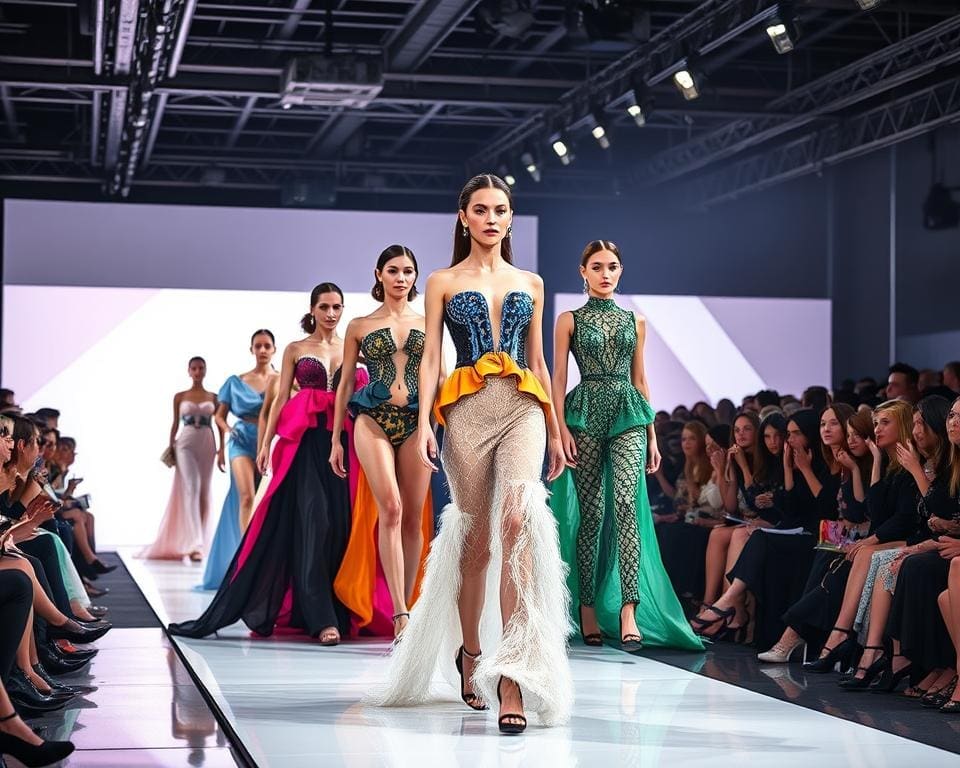The 21st century has witnessed remarkable transformations in the world of fashion, with an array of visionary fashion designers emerging as pivotal figures in shaping the industry. These influential designers have not only redefined what it means to wear stylish garments but have also contributed significantly to the cultural and societal ethos of our times. From Alexander McQueen’s theatrical presentations to Karl Lagerfeld’s timeless elegance, the most influential fashion designers of the 21st century have left an indelible mark on haute couture and streetwear alike.
As we delve into their innovative approaches and distinctive styles, it becomes clear how their works echo the evolving narratives of contemporary life. Their ability to merge creativity with relevance demonstrates the profound impact these designers have on how we perceive fashion today, making them key players in the ever-changing landscape.
Key Characteristics of Influential Fashion Designers
The realm of fashion showcases a diverse array of creative visionaries who redefine style through their innovative approaches. These designers possess distinctive characteristics that elevate their work and establish their legacy in the industry.
Creative Vision and Innovation
Fashion designers are celebrated for their ability to push boundaries, bringing forth unique concepts that challenge traditional aesthetics. This creative vision often translates into groundbreaking collections that captivate audiences. Designers like Alexander McQueen exemplified this through theatrical presentations that blended fashion with artistry, leaving a profound impression on the fashion world.
Impact on Haute Couture
The impact on haute couture remains a cornerstone of influential fashion. Designers such as Raf Simons and Valentino Garavani have skilfully amalgamated craftsmanship with contemporary design, blurring the lines of what luxury means today. Their artistic expressions have transformed the landscape of high fashion, emphasising the meticulous detail and innovation that a modern haute couture collection can embody.
Setting Trends in the Fashion Industry
Setting trends is where many contemporary fashion designers shine. Figures like Virgil Abloh demonstrate how modern design can influence not just clothing but an entire lifestyle. By merging streetwear with high fashion, these trendsetters create a narrative that resonates with younger audiences, showcasing the powerful intersection of culture and style.

The Most Influential Fashion Designers of the 21st Century
The landscape of fashion has evolved significantly in the 21st century, with designers who have not only showcased talent but have also made profound impacts on culture and society. This segment delves into the works and contributions of these influential figures, highlighting their remarkable ability to shape fashion narratives and drive conversations on crucial global issues.
Exploring the Works and Contributions
From theatrical runway shows to sustainable practices, the works of the most influential fashion designers of the 21st century reflect a diverse array of styles and values. Iconic designers, such as Alexander McQueen, revolutionised the fashion scene with his dramatic presentations and intricate designs that pushed the boundaries of creativity. Stella McCartney emerged as a pioneer in sustainable fashion, advocating for environmentally conscious practices without compromising aesthetic appeal. These contributions redefine traditional perspectives, encouraging a broader understanding of fashion as an art form intertwined with social responsibility.
Global Impact and Cultural Relevance
The global impact of these designers transcends mere clothing. Their creations resonate with audiences across cultures, addressing pressing issues like climate change, inclusivity, and body positivity. The relevance of their designs sparks conversations, providing a platform for discussing identity in modern society. Fashion becomes a reflection of cultural expression, bridging gaps and fostering understanding among diverse communities. This dynamic interplay highlights the vital role of influential designers in shaping the narrative of fashion while leaving a lasting imprint on global culture.
Emerging Trendsetters Transforming Fashion
In the evolving landscape of the fashion industry, emerging trendsetters like Telfar Clemens and Peter Do are making significant strides by reshaping traditional concepts of inclusivity and accessibility. Their innovative approaches heighten the conversation around what it means to be fashionable in a contemporary context, pushing boundaries and inviting a broader audience to engage with their designs. This focus on representation is crucial, as it challenges the status quo and encourages a much-needed dialogue about diversity within the industry.
Social media plays an instrumental role in elevating these emerging designers, offering them a platform to showcase their unique visions to a global audience. Through platforms such as Instagram and TikTok, they can instantly reach potential customers, connecting with consumers in ways that were previously unimaginable. This direct engagement fosters a sense of authenticity, allowing designers to articulate their narratives and values while redefining what it means to succeed in the fashion industry.
The influence of these trendsetters extends beyond aesthetics; they are committed to creating a more equitable landscape, emphasising the importance of community and connections. By prioritising sustainability and ethical practices, they are setting new standards that resonate with a generation eager for change. As these emerging trendsetters continue to rise, their impact on transforming fashion will undoubtedly inspire others to join in the movement towards a more inclusive and representative future.








